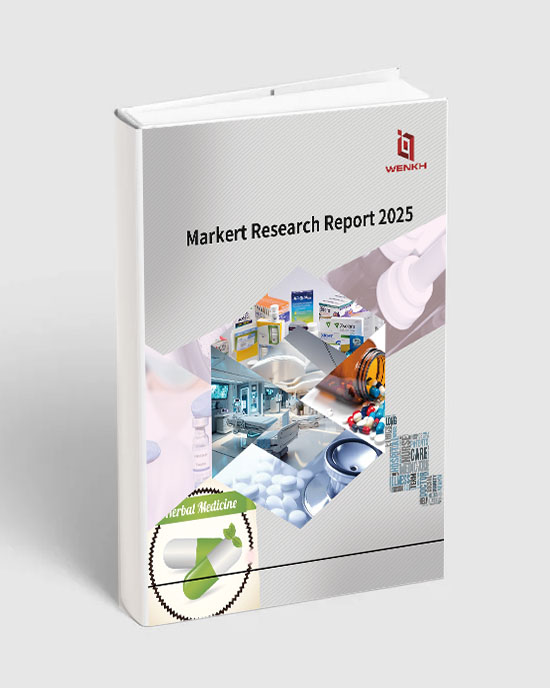
Global Chemotherapy Devices Market Competitors, Segment Types and Downstream Applications Research Report 2025



Research Summary
Chemotherapy devices refer to specialized medical equipment and systems used in the administration and delivery of chemotherapy treatments to cancer patients. These devices are designed to accurately and safely deliver chemotherapy drugs into the patient's body, either through intravenous (IV) infusion, oral administration, or localized delivery. Chemotherapy devices can include IV infusion pumps, which control the rate and dosage of chemotherapy drugs administered directly into the bloodstream, ensuring precise delivery and minimizing the risk of medication errors. Other devices may be used for oral chemotherapy, allowing patients to take their medication in the form of pills or capsules. Additionally, certain advanced devices are used for targeted or localized delivery of chemotherapy to specific areas, such as tumors or cancerous tissues, to enhance treatment effectiveness while minimizing side effects. Chemotherapy devices play a critical role in cancer treatment, enabling oncologists to tailor treatment regimens to individual patients' needs, improve therapy outcomes, and enhance the overall quality of life during cancer treatment.
According to WENKH research statistics, the global Chemotherapy Devices market sales revenue reached Million USD in 2024 and is expected to reach Million USD by 2032, with a compound annual growth rate (CAGR) of % from 2025 to 2032. Among them, the China Chemotherapy Devices market has experienced rapid changes in recent years, reaching Million USD in 2024, accounting for approximately % of the global market share. It is projected to reach Million USD by 2032.
The global Chemotherapy Devices market is highly competitive, with key market players including BD, ICU Medical, Terumo Corporation, B. Braun, Halyard Health, Smiths Group, Baxter International, Fresenius, Moog, Zyno Medical, Micrel Medical, etc. This report categorizes the competitive landscape of the global Chemotherapy Devices market into three tiers based on annual revenue, with the top three market players holding approximately % of the total market share.
This report provides an in-depth analysis of the global Chemotherapy Devices market, including market size, price trends, market status and future development prospects. It particularly focuses on the market share, product characteristics, pricing, revenue, sales volume and gross profit margin of major manufacturers in the global Chemotherapy Devices industry. Additionally, this report provides an in-depth analysis of the market status and future development trends of different segments of Chemotherapy Devices and their downstream application fields.
In terms of data coverage, this report includes extensive time-series data. Historical data spans from 2020 to 2024, providing a solid foundation for analyzing market development trends. The year 2025 is used as a base year to accurately assess the current market landscape, while forecast data extends from 2026 to 2032, using scientific analysis methods and models to offer forward-looking projections and insights into the market's future trajectory. This provides valuable reference information for industry participants and stakeholders.
The report covers countries including United States, China, Germany, Japan, France, South Korea, United Kingdom, India, Italy, Brazil, Mexico, Indonesia, Vietnam and South Africa. It particularly focuses on the revenue and sales volume of Chemotherapy Devices in these countries, as well as the product segmentation and downstream application market size of each country. The report provides an in-depth analysis of the regional distribution and future development trends of the Chemotherapy Devices market. By considering local policies, this report evaluates the market prospects of Chemotherapy Devices in each country, aiming to help companies gain a comprehensive understanding of the industry characteristics and development potential in different regions, optimize regional business layout, and develop precise market strategies to achieve global development goals.
This report places significant emphasis on data quality and reliability, leveraging a wide range of data sources to ensure accuracy and validity. Primary data collection is conducted through multiple channels, including in-depth interviews with senior corporate executives, industry experts, supply chain participants, and end consumers. This helps to gain insights into corporate strategic planning, industry policies, supply chain dynamics, and user experiences. Secondary data sources cover an extensive range, including authoritative government statistics, customs databases, industry related reports, third-party paid databases, investment research reports, academic studies, corporate financial statements, real-time media updates, and information from international organizations, all of which serve as a solid foundation for data verification and analysis.
Companies Covered
BD
ICU Medical
Terumo Corporation
B. Braun
Halyard Health
Smiths Group
Baxter International
Fresenius
Moog
Zyno Medical
Micrel Medical
Product Segment
LVP (Large Volume Pump)
Syringe Pump
Elastomeric Pumps
Product Application
Hospital & Clinic
Home Care
Chapter Scope
Chapter 1: Product Statistical Scope, Product Segmentation Types and Downstream Applications, Overall Market Size, Current Status and Development Prospects
Chapter 2: Global Chemotherapy Devices Industry Chain Analysis
Chapter 3: Global Chemotherapy Devices Industry Environment Analysis and Porter's Five Forces Analysis
Chapter 4: Analysis of the Competitive Landscape of Major Companies in the Global Chemotherapy Devices Market (Market Share, Product Revenue and Sales Volume Comparison, Tier Division, Corporate Expansion and M&A Trends)
Chapter 5: Analysis of Global Major Companies (Company Profiles, Product Specifications and Features, Product Revenue, Product Sales Volume, Product Average Price and Product Gross Profit Margin)
Chapter 6: Global Chemotherapy Devices Market Analysis by Countries, Product Segment and Downstream Application (Sales Volume, Revenue and Average Price)
Chapter 7: United States Chemotherapy Devices Market Size, Product Segment, Downstream Application Analysis (Sales Volume, Revenue and Average Price)
Chapter 8: China Chemotherapy Devices Market Size, Product Segment, Downstream Application Analysis (Sales Volume, Revenue and Average Price)
Chapter 9: Germany Chemotherapy Devices Market Size, Product Segment, Downstream Application Analysis (Sales Volume, Revenue and Average Price)
Chapter 10: Japan Chemotherapy Devices Market Size, Product Segment, Downstream Application Analysis (Sales Volume, Revenue and Average Price)
Chapter 11: France Chemotherapy Devices Market Size, Product Segment, Downstream Application Analysis (Sales Volume, Revenue and Average Price)
Chapter 12: South Korea Chemotherapy Devices Market Size, Product Segment, Downstream Application Analysis (Sales Volume, Revenue and Average Price)
Chapter 13: United Kingdom Chemotherapy Devices Market Size, Product Segment, Downstream Application Analysis (Sales Volume, Revenue and Average Price)
Chapter 14: India Chemotherapy Devices Market Size, Product Segment, Downstream Application Analysis (Sales Volume, Revenue and Average Price)
Chapter 15: Italy Chemotherapy Devices Market Size, Product Segment, Downstream Application Analysis (Sales Volume, Revenue and Average Price)
Chapter 16: Brazil Chemotherapy Devices Market Size, Product Segment, Downstream Application Analysis (Sales Volume, Revenue and Average Price)
Chapter 17: Mexico Chemotherapy Devices Market Size, Product Segment, Downstream Application Analysis (Sales Volume, Revenue and Average Price)
Chapter 18: Indonesia Chemotherapy Devices Market Size, Product Segment, Downstream Application Analysis (Sales Volume, Revenue and Average Price)
Chapter 19: Vietnam Chemotherapy Devices Market Size, Product Segment, Downstream Application Analysis (Sales Volume, Revenue and Average Price)
Chapter 20: South Africa Chemotherapy Devices Market Size, Product Segment, Downstream Application Analysis (Sales Volume, Revenue and Average Price)
Chapter 21: Research Conclusion
Chapter 22: Methodology and Data Source
Purpose and Value of the Report
Market Trend Insights: Analyze industry trends, market dynamics, and future growth potential to help companies forecast changes and develop strategic plans.
Competitive Landscape Analysis: Understand key players' revenue segmentation, strategies, market share, and business models to guide competitive decisions.
Investment Decision Support: Provide feasibility analysis through market size, growth rate, demand trends, and potential risks for informed investment decisions.
Target Customer and Demand Analysis: Examine consumer behavior, purchasing preferences, and pain points to optimize products and improve market penetration.
Policy and Regulatory Insights: Interpret relevant industry policies to ensure compliance and mitigate regulatory risks.
Business Model Optimization: Offer data-driven suggestions for enhancing business models and improving profitability.





